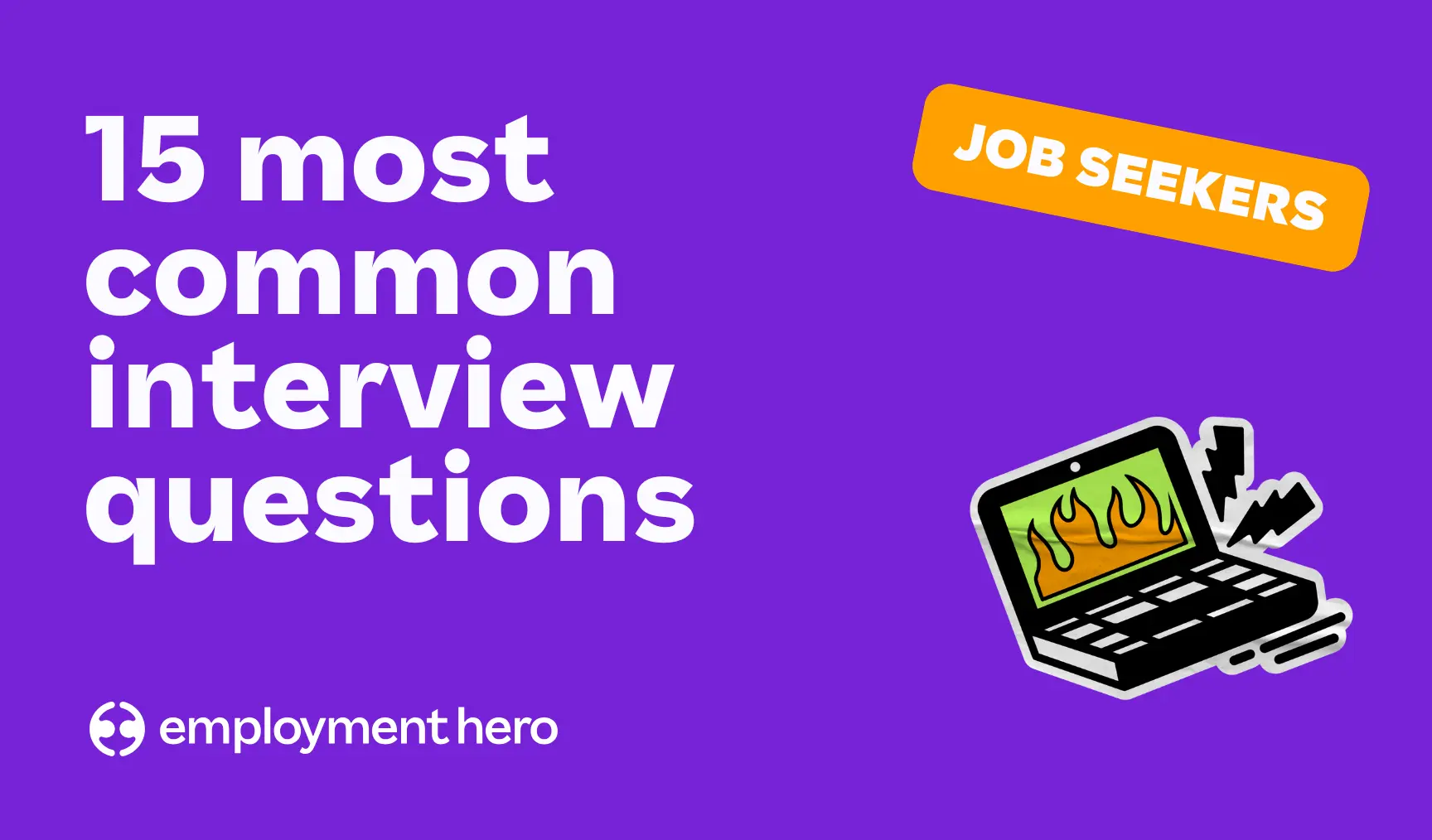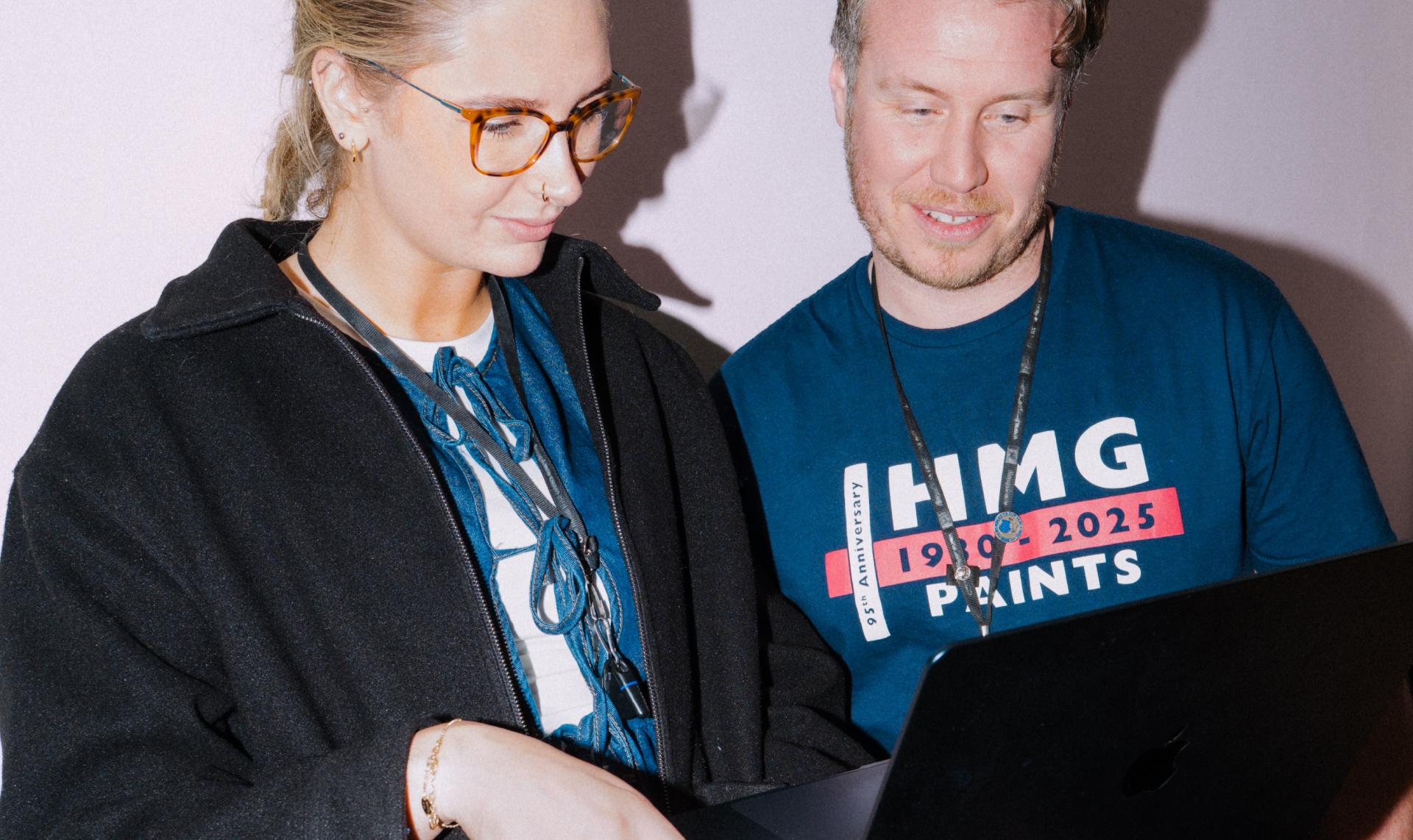15 Most Common Interview Questions And How To Answer
Preparing for a job interview can feel like an uphill battle, but with the right preparation, you can approach it with confidence.

Contents
Preparing for a job interview can feel like an uphill battle, but with the right preparation, you can approach it with confidence. Employers in the UK value professionalism, clear communication and a balance of both hard and soft skills. Crafting the perfect answers to typical interview questions is key to not only showcasing your skills but also standing out as the right candidate for the role.
Here, we’ve compiled 15 common job interview questions that UK employers frequently ask, complete with example answers and tips. These insights will help you frame your responses effectively and professionally. Ready to ace your next interview? We’ve got you covered.
Why preparing for standard interview questions matters
Anticipating likely interview questions brings several advantages, such as:
- Reducing stress and anxiety: Knowing what to expect enables you to structure your answers confidently.
- Improving clarity: Well-thought-out responses demonstrate professionalism and effective communication.
- Highlighting cultural fit: UK workplaces prioritise teamwork, adaptability and collaboration. Showing that you align with these values can give you a competitive edge.
- Showcasing preparedness: Thoughtful responses signal to employers that you’re serious about the opportunity.
By preparing for interviews, you’re equipping yourself with the tools to present your best self. The following list of standard interview questions can guide you in framing your answers strategically.
The most common job interview questions and how to answer them
1. Tell me about yourself
This classic opener allows the interviewer to learn about your background quickly. Keep your answer concise and focused on your professional achievements.
Example answer:
“I’m an experienced sales strategist with eight years in the FMCG sector. My recent role involved leading a team that boosted product sales by 30% year-on-year in the South East region. I’m passionate about using data-driven insights to enhance customer engagement and am keen to bring this approach to your company.”
2. Why do you want this job?
Link your skills and experience to the specific role while conveying your enthusiasm for the company.
Example answer:
“Having followed your company’s growth in the tech sector, I admire your innovative approach to digital transformation. This role aligns perfectly with my experience in project leadership and my passion for driving impactful change within organisations.”
3. What are your strengths and weaknesses?
Share strengths that are relevant to the role and for weaknesses, explain how you’re actively working to improve them.
Example answer – strength:
“My adaptability stands out as a strength. I’ve managed projects across multiple departments, ensuring deadlines were consistently met despite shifting priorities.”
Example answer – weakness:
“I used to struggle with delegating tasks, preferring to handle everything myself. However, I’ve worked on improving this by focusing on collaboration and ensuring team members feel empowered.”
4. Where do you see yourself in five years?
Employers want to see ambition while knowing you’re invested in the organisation’s success. They’re not expecting you to stay forever, but they’re checking for goal alignment.
Example answer:
“In five years, I see myself advancing into a leadership role where I can spearhead innovative solutions while mentoring junior colleagues to drive collective success.”
5. Why should we hire you?
This is your chance to address why you’re the perfect fit for both the role and the company.
Example answer:
“My skillset aligns perfectly with the position’s requirements. From improving efficiency in office workflows to cultivating strong relationships with stakeholders, I not only meet but exceed the core competencies for this role.”
6. Describe a time you faced a challenge at work
Use the STAR method (Situation, Task, Action, Result) to frame your response.
Example answer:
“During a product launch (Situation), demand exceeded supply, causing delays (Task). I coordinated with local suppliers to redistribute stock, creating a delivery tracker to prioritise accounts (Action). We mitigated customer dissatisfaction and achieved an 85% on-time delivery rate despite the initial setback (Result).”
7. What do you know about our company?
Research thoroughly and refer to the company’s achievements, ethos and future goals.
Example answer:
“I recently read about your company’s sustainability initiative in the manufacturing sector,and I admire how you’re integrating eco-friendly practices. Your commitment to ethical sourcing really resonates with my personal values.”
8. What’s your greatest professional achievement?
Highlight achievements that involved measurable impact. This is your opportunity to humble-brag about your work. Focus on projects you led or held key responsibilities in.
Example answer:
“My proudest achievement was leading a campaign that increased social media engagement by 60% over six months, generating £250,000 in new sales revenue.”
9. How do you handle pressure or tight deadlines?
Employers value individuals who perform well under stress. You don’t have to be a meditation expert but they’re looking for any coping strategies you’ve developed.
Example answer:
“When the pressure’s on, I ensure tasks are prioritised and I communicate regularly with stakeholders. For example, during a previous project, I introduced agile processes to manage urgent client requirements effectively, improving turnaround times by 25%.”
10. Do you have any questions for us?
This is your opportunity to express your interest while gathering vital information.
Example questions:
- “What does success look like in this role after 6 months?”
- “How would you describe the team culture here?”
- “Are there opportunities for training and development?”
Structuring your answers with the STAR method
The STAR technique is widely recognised in the UK as a failsafe way to answer behavioural questions. Use this approach to structure clear, compelling responses:
- Situation – Set the scene; explain the context.
- Task – Describe the specific challenge or responsibility.
- Action – Explain the steps you took and why you chose them.
- Result – Highlight the outcome, using measurable success where possible.
Practising this method in advance ensures you provide concise, effective answers that leave a positive impression.
Final tips to help ace your next interview
- Research the employer thoroughly: Understand their values, recent projects and industry position.
- Practice your questions and answers aloud: This will improve your delivery and boost confidence.
- Dress professionally: Tailor your attire to reflect the company culture while maintaining professionalism.
- Prepare for remote or hybrid interviews: For virtual meetings, ensure good lighting, a tidy background and test your technology ahead of time.
- Follow up with a thank-you note: A polite email to extend your thanks can reaffirm your enthusiasm for the role.
Get Closer to Your Career Goals
Preparation is the foundation of success. By practicing answers to these common job interview questions, you set yourself up for confidence, professionalism, and impactful conversations.
Are you ready to take the next step in your career? Start searching for jobs and create your profile to let the best jobs find you.
FAQs
Keep your answers concise and to the point, ideally between 1-2 minutes for most questions. This demonstrates clear communication and respect for the interviewer’s time. For more complex questions, like those requiring the STAR method, you might take slightly longer, but always aim for clarity and directness.
The “5 P’s of interviewing” refer to Proper Preparation Prevents Poor Performance. This simple phrase encapsulates the essence of successful interviewing, highlighting the importance of thorough preparation to ensure you perform your best.
Prepare thoughtful questions in advance that demonstrate your interest and curiosity about the role and company. Consider asking about the team culture, specific projects, opportunities for growth or the company’s future direction. This shows genuine engagement and helps you assess if the role is a good fit for you.
To ace an interview, always research the company, be punctual, dress professionally and actively listen while asking thoughtful questions. Crucially, send a thank-you note afterwards. Avoid speaking negatively about past employers, being unprepared with generic answers, interrupting the interviewer, focusing solely on compensation, or misrepresenting your experience.
If you don’t know the answer, it’s best to be honest. You can say, “That’s a great question and I’m not entirely sure of the specific answer right now. However, I would approach finding the solution by…” or “While I don’t have direct experience with that, I’m a quick learner and I’m confident I could acquire the necessary skills.” This shows your problem-solving ability and willingness to learn.
For an interview, it’s generally best to dress in professional or smart-casual attire, depending on the industry and company culture. When in doubt, lean towards more formal. A suit or smart separates are usually safe choices. Ensure your clothes are clean, ironed and fit well.
Yes, always follow up with a thank-you note or email within 24 hours of your interview. It’s a professional courtesy that reiterates your interest in the role and allows you to briefly restate why you’re a good fit.
When discussing salary expectations, it’s best to research the typical salary range for the role and your experience level in the UK. Provide a realistic range rather than a single figure. You can say something like, “Based on my experience and the market rate for similar roles, I’m looking for a salary in the range of £X to £Y.” It’s also acceptable to state you are open to negotiation and that your primary interest is in the role itself.
For virtual interviews, ensure your technology (internet, camera, microphone) is working perfectly beforehand. Choose a quiet, well-lit space with a neutral background. Dress professionally, just as you would for an in-person interview. Practice answering questions while looking into the camera to simulate eye contact, and have a glass of water handy. Minimise distractions by closing unnecessary tabs and notifying housemates.
Interviews in the UK often place a strong emphasis on professionalism, cultural fit, and a candidate’s ability to demonstrate both hard and soft skills. While many interview practices are shared globally, it is important to recognise that the UK is a proudly multicultural society—this diversity is a core aspect of its workplace culture. Employers tend to value clear communication, a collaborative mindset and openness to different perspectives. An awareness of British workplace etiquette is also regarded favourably. Interview questions may explore how candidates contribute to global teams, adapt to change and align with the organisation’s values, in addition to assessing their technical expertise.
Yes, taking notes is generally acceptable and can be beneficial. It shows you’re engaged and helps you remember details. Just be discreet and avoid letting it distract you from the conversation.
Related Resources
-
 Read more: Is your HR system still stuck in the Stone Age? It’s time to future-proof
Read more: Is your HR system still stuck in the Stone Age? It’s time to future-proofIs your HR system still stuck in the Stone Age? It’s time to future-proof
Manual HR processes create hidden costs and risks. Learn how a future-proof HR system can unlock efficiency, compliance, and business…
-
 Read more: Automate HR Processes: 5 Key Processes You Should be Automating in 2025
Read more: Automate HR Processes: 5 Key Processes You Should be Automating in 2025Automate HR Processes: 5 Key Processes You Should be Automating in 2025
Automating HR processes is no longer a far-off future goal, it’s a strategic necessity. We’re diving into exactly why your…
-
 Read more: AI in HR: How to keep the human in Human Resources and payroll with AI
Read more: AI in HR: How to keep the human in Human Resources and payroll with AIAI in HR: How to keep the human in Human Resources and payroll with AI
Discover how AI can complement human efforts in HR and enable teams to focus on the bigger picture.



















